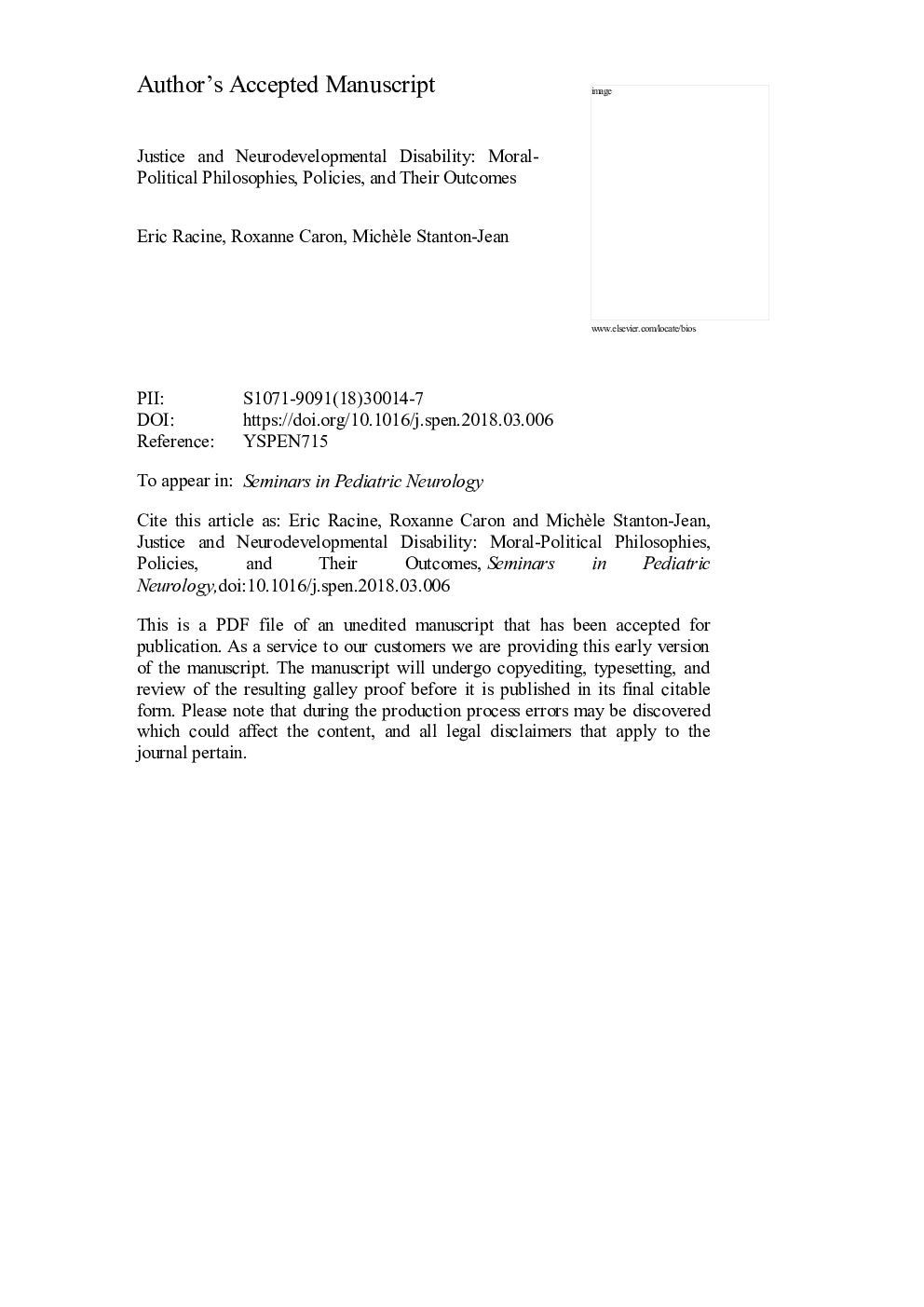| Article ID | Journal | Published Year | Pages | File Type |
|---|---|---|---|---|
| 11014753 | Seminars in Pediatric Neurology | 2018 | 20 Pages |
Abstract
Neurodevelopmental disabilities, such as cerebral palsy and autism, touch a population which has been dubbed to be “doubly vulnerable.” Individuals with neurodevelopmental disability have conditions that impair their cognition, communication, mobility, or social interactions, and they also rely on others to make decisions on their behalf. Accordingly, these children-as described in other contributions of this special issue-are particularly prone to suffer from systemic (ie, social, economic, and political) conditions that give or prevent access to quality and timely health care and social services as well as economic opportunities. In this article, we expose 2 different views on the principle of justice (justice as equality and justice as fairness). We then examine policy approaches and general outcomes of 3 countries (Sweden, the United States of America, and the United Kingdom), which have opted for different policy orientations. The United Kingdom's targeted approach to neurodevelopmental disability seems to be generating interesting results while the more general Swedish approach is not without merits, although perhaps more difficult to apply to other countries. Given knowledge gaps, there is great need to compare different policy approaches to neurodevelopmental disability and their real-world implications on the life of individuals and their families.
Related Topics
Life Sciences
Neuroscience
Developmental Neuroscience
Authors
Eric PhD, Roxanne Caron, Michèle PhD,
